The Red Envelope: Billkin and PP Krit’s Take on a Love Story Beyond the Grave
In a cinematic landscape saturated with remakes, reboots and sequels, you might ...
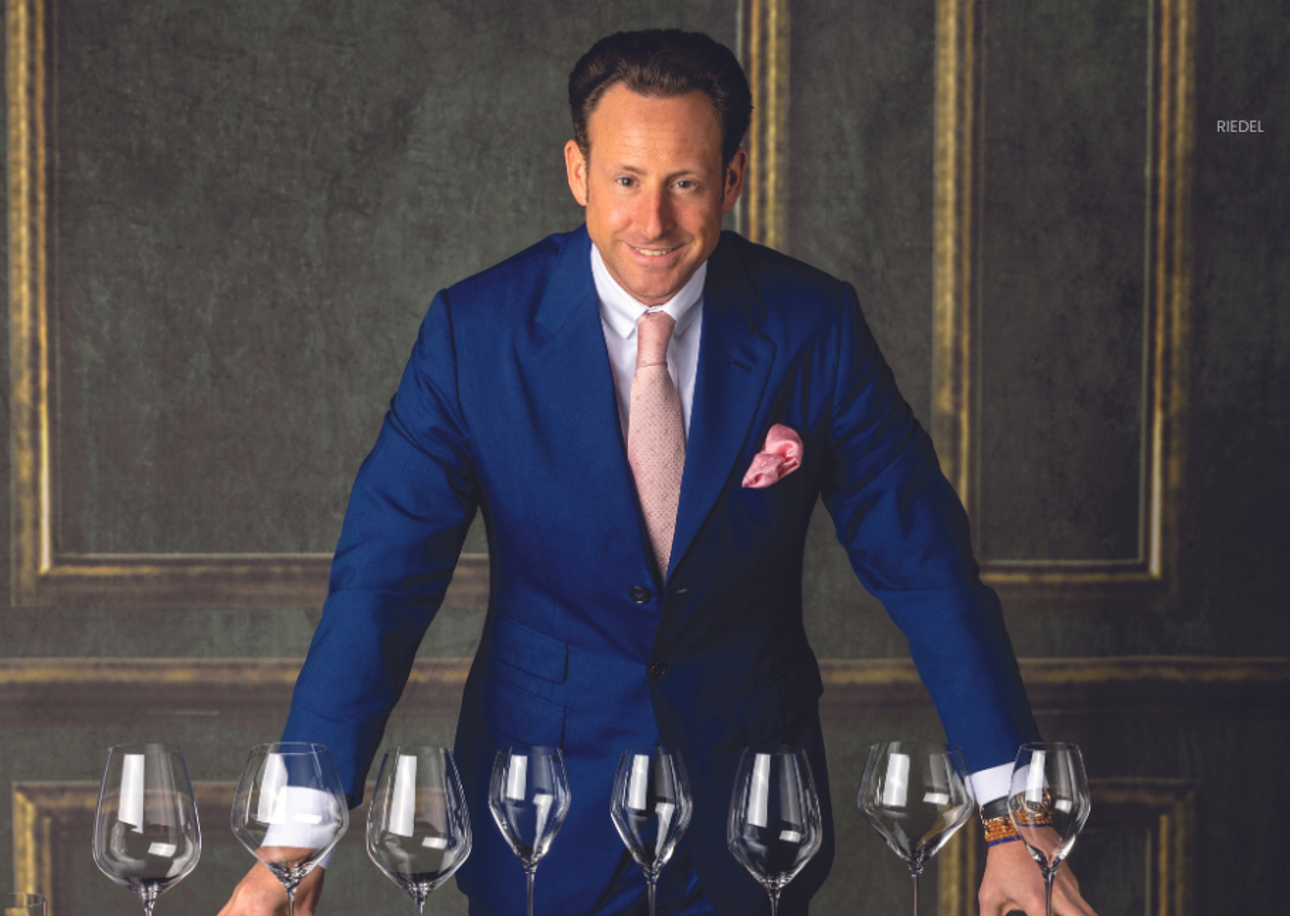
Maximilian Josef Riedel, the eleventh-generation CEO and President of Riedel, a glassware manufacturer with roots tracing back to 1756, sat down exclusively with Koktail to discuss the evolution of glassmaking and the balance between tradition and innovation within the industry.
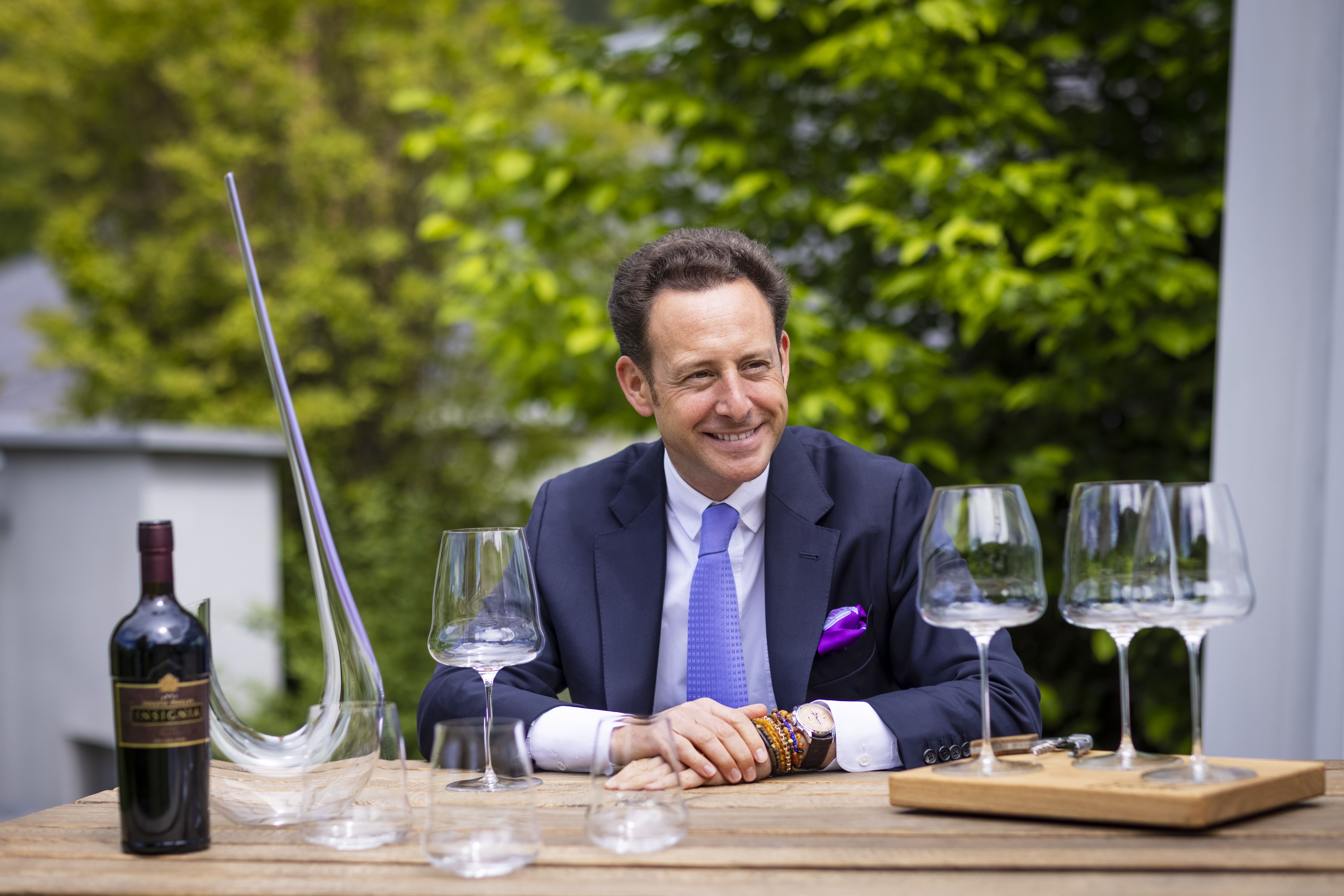
“We have a global distribution in over 140 countries and we are glass makers by choice, by tradition and one of the few left to produce in Europe.”
While the focus has shifted over generations, from table settings to exclusive wine glasses, Mr. Riedel stressed the importance of adapting to meet modern demands.
“We believe we’ve reinvented the design, shape, and function of modern wine glasses, whether stemmed or stemless. Our focus has shifted towards machine production due to global demand for quality at competitive prices. While we’re one of the last to produce both handmade and machine-made glasses, our prototypes are crafted by hand before transitioning to machine production.
Although some products remain handmade, our main supply consists of machine-made glasses. Only a few global markets, such as Thailand, appreciate handmade luxury. Thailand, one of the largest luxury markets in Asia, is a key focus for us, while the rest of the world is primarily supplied with machine-made glasses.”
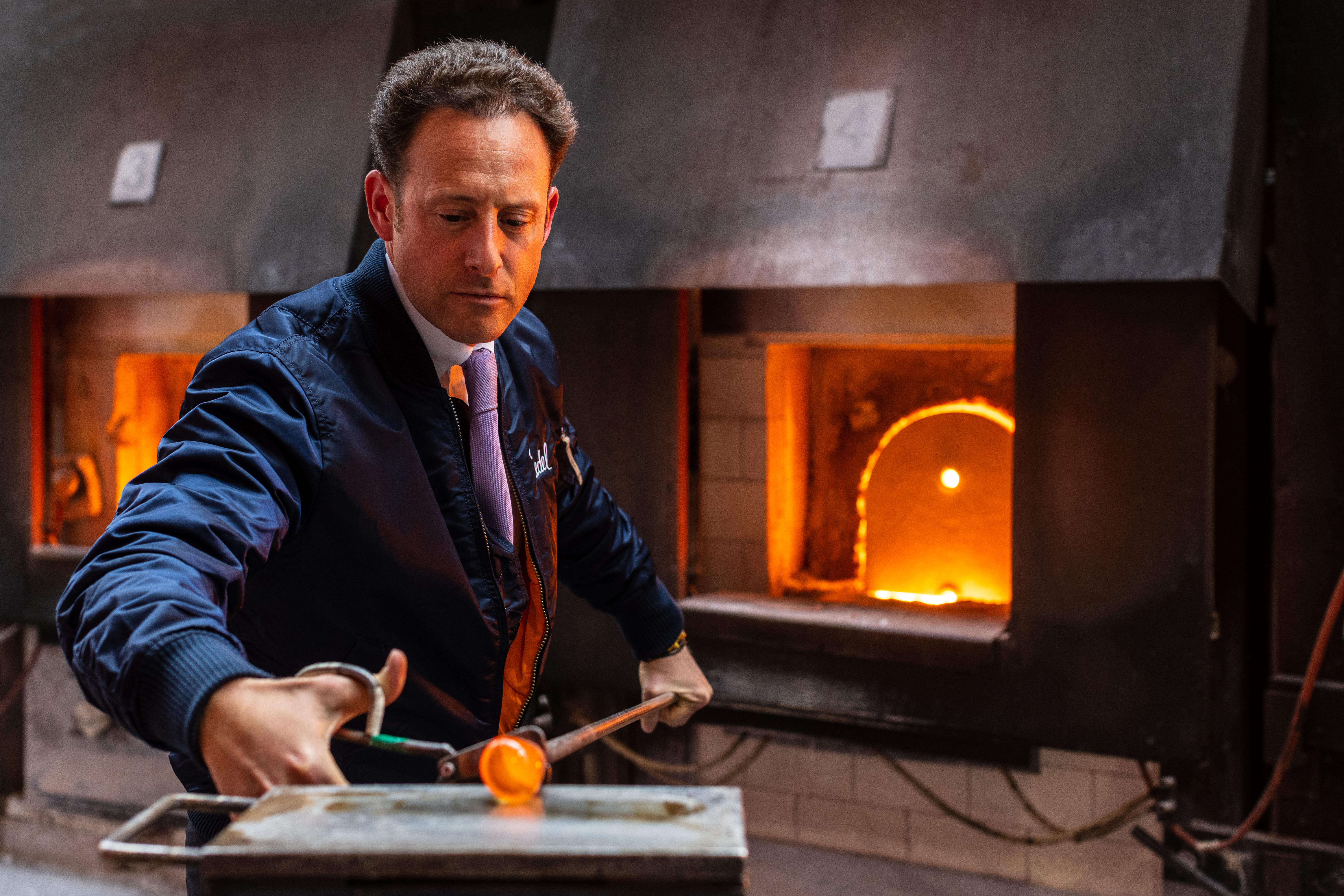
Discussing the impact of glass design on wine taste, he underscored the simple principle of selecting a glass based on personal preference and the characteristics of the wine.
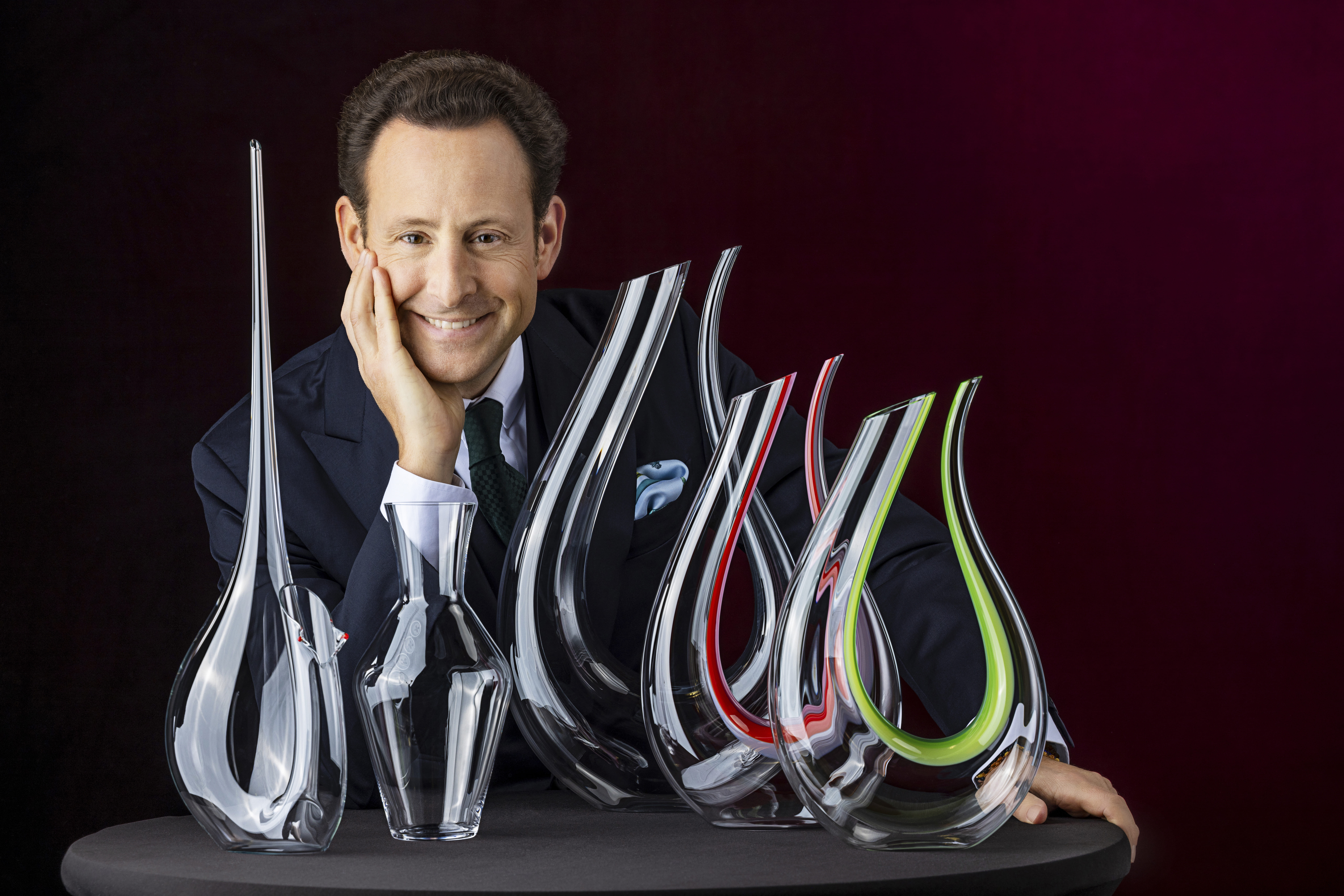
“We have different glasses for different specific wines, grape varieties. So, our concept is that every fruit, every grape, due to its characteristics, skin, terroir, and climate, needs its own messenger on a wine glass.
For me, I love them all; obviously, I design most of them, and it depends on the season of the year. In the fall, I drink more red wine, so a red wine glass would be my choice, particularly the glass for Pinot Noir and Nebbiolo, which goes well with truffles. Now that we’re here in Thailand, where we have a certain hot temperature, I would rather go with white wine, rosé, or champagne. My favourite white wine fruit is Riesling; I would choose the glass accordingly.”
Through wine glass tastings, Mr. Riedel elucidated how subtle differences in design can significantly alter the tasting experience, emphasising function over aesthetics.
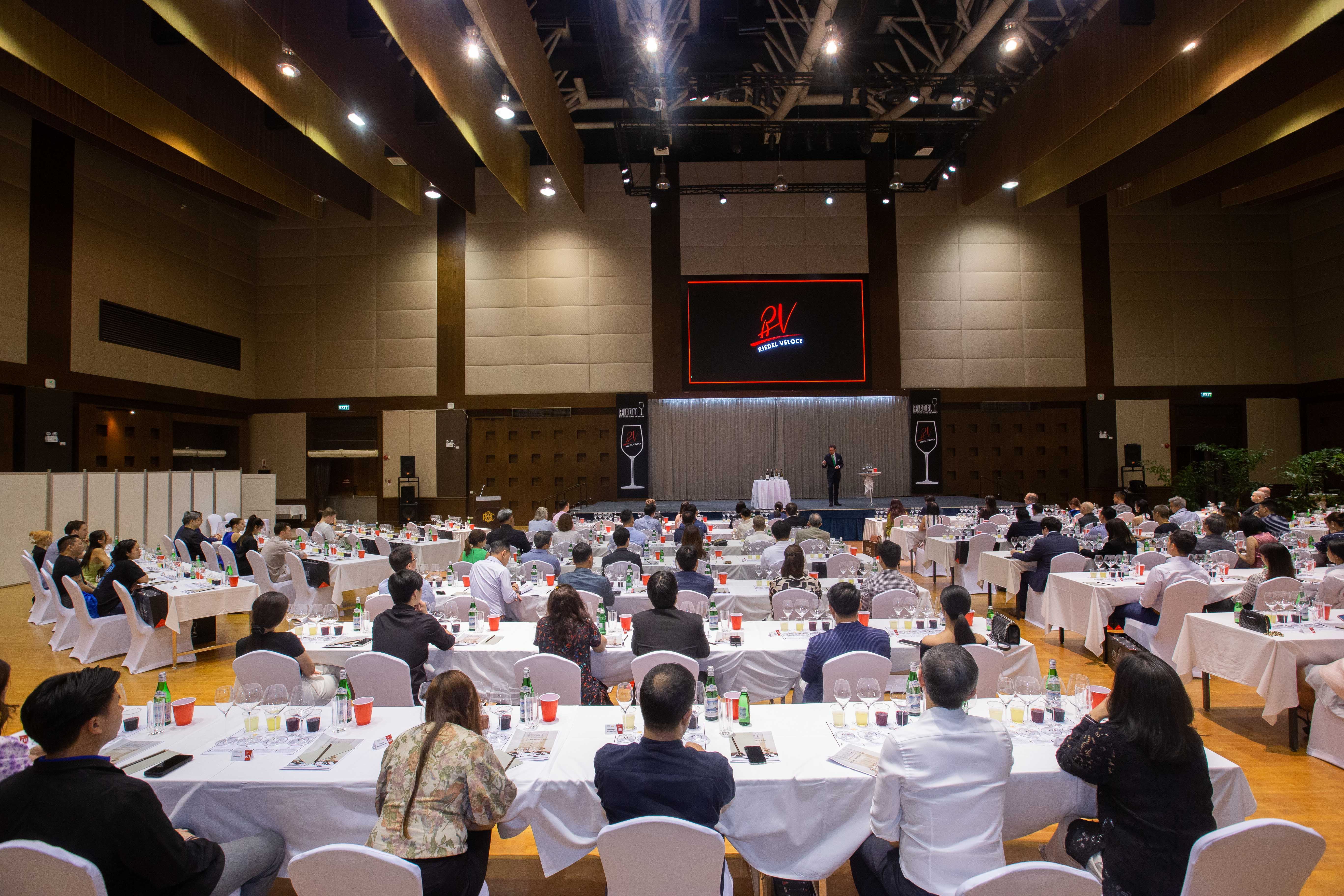
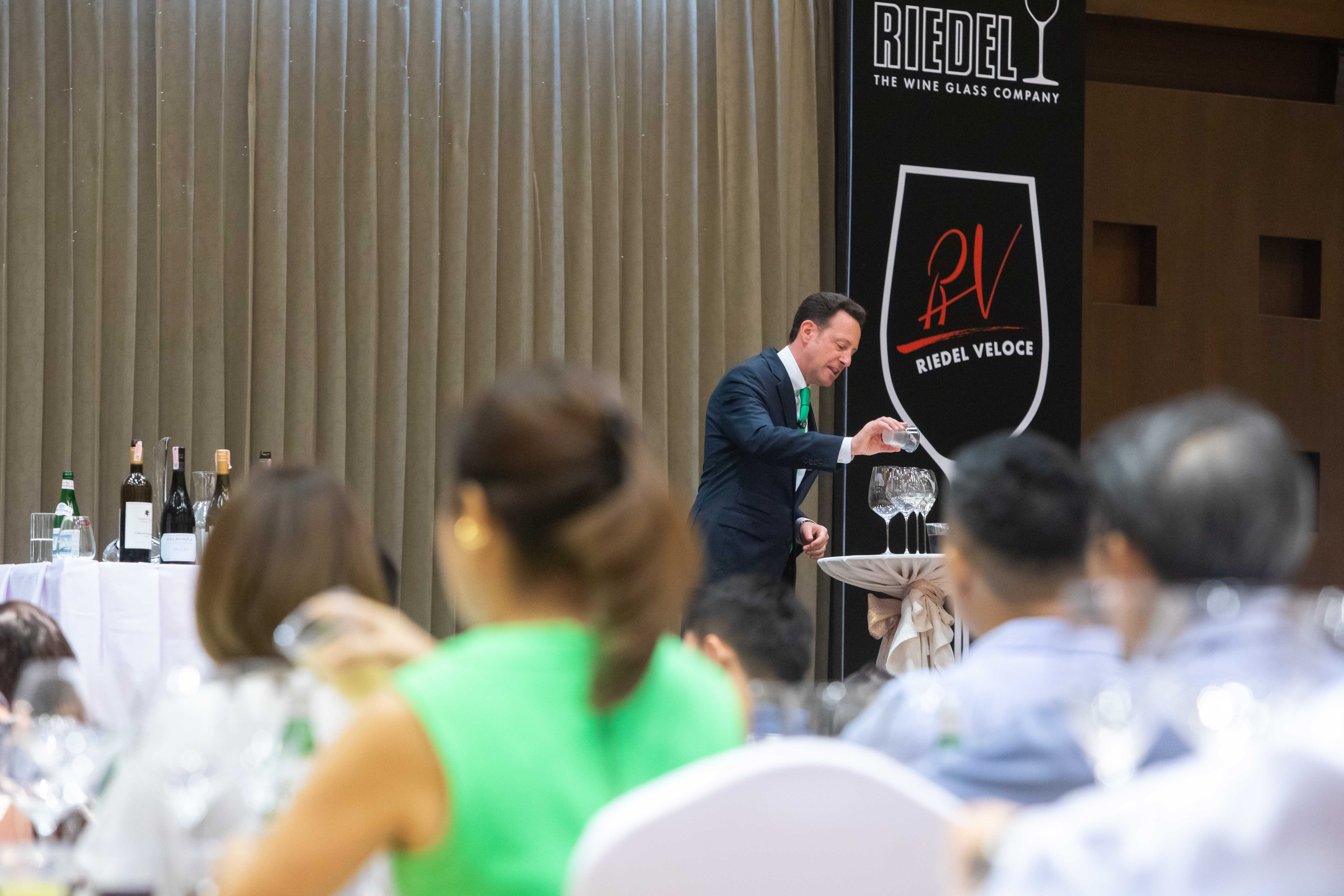
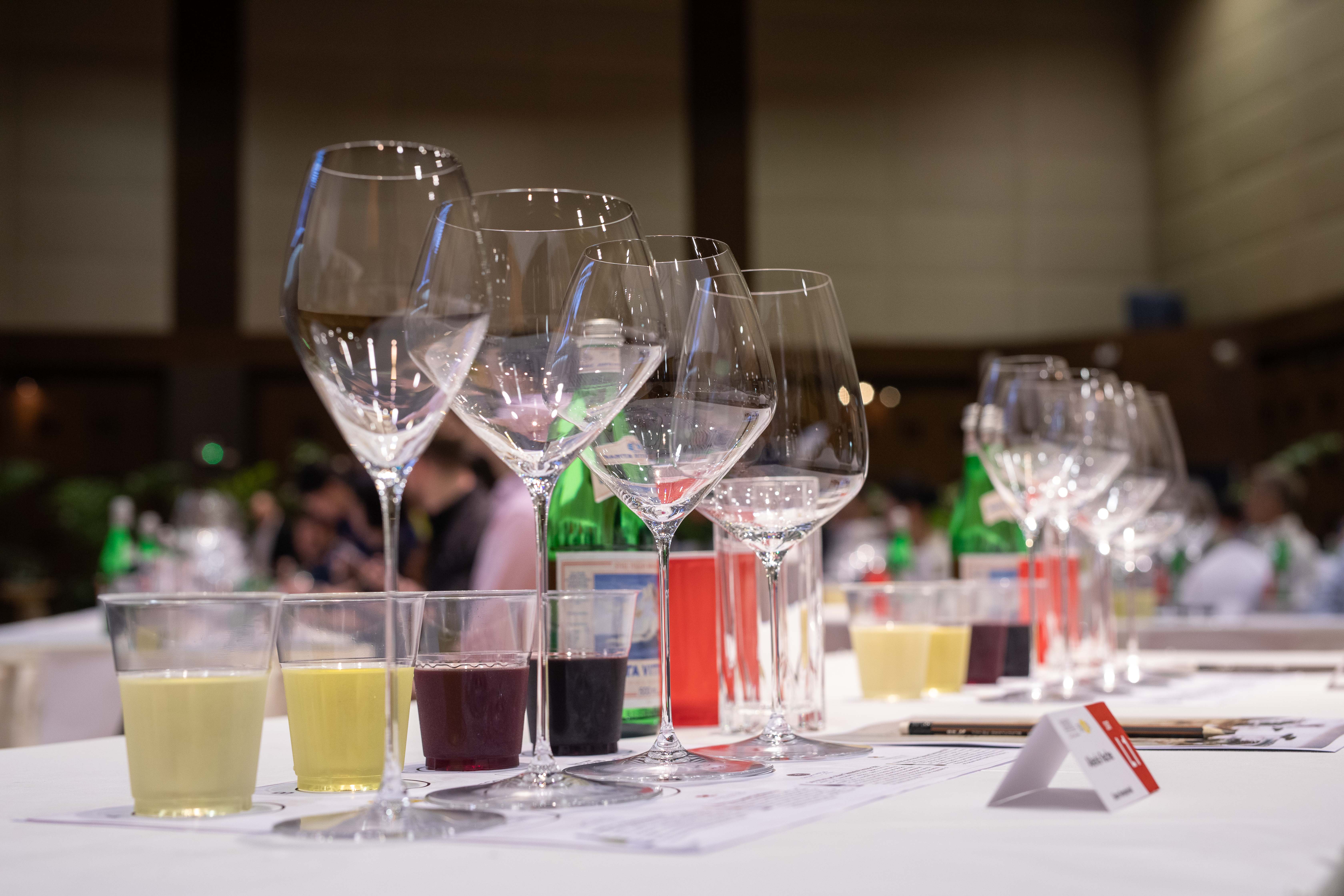
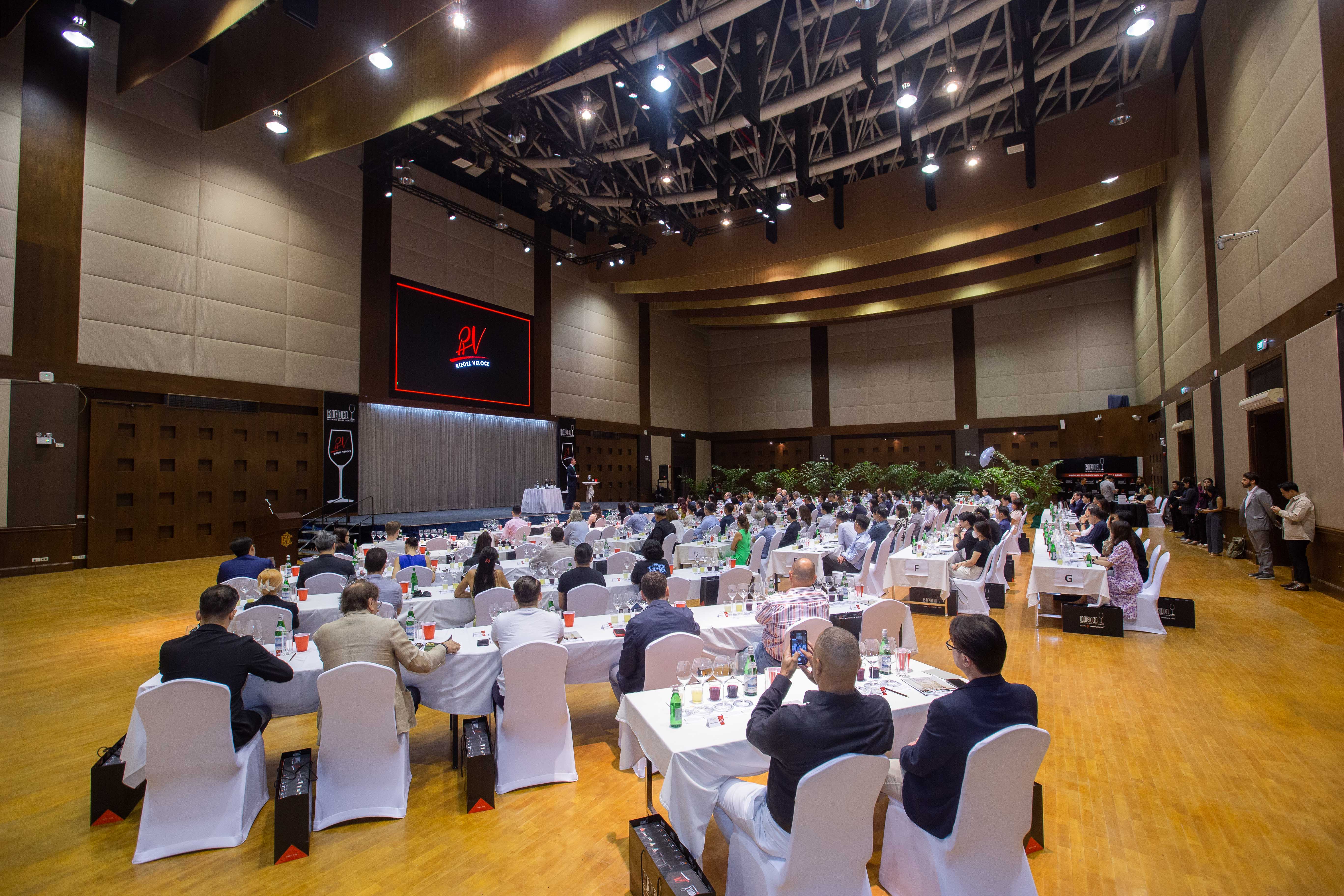
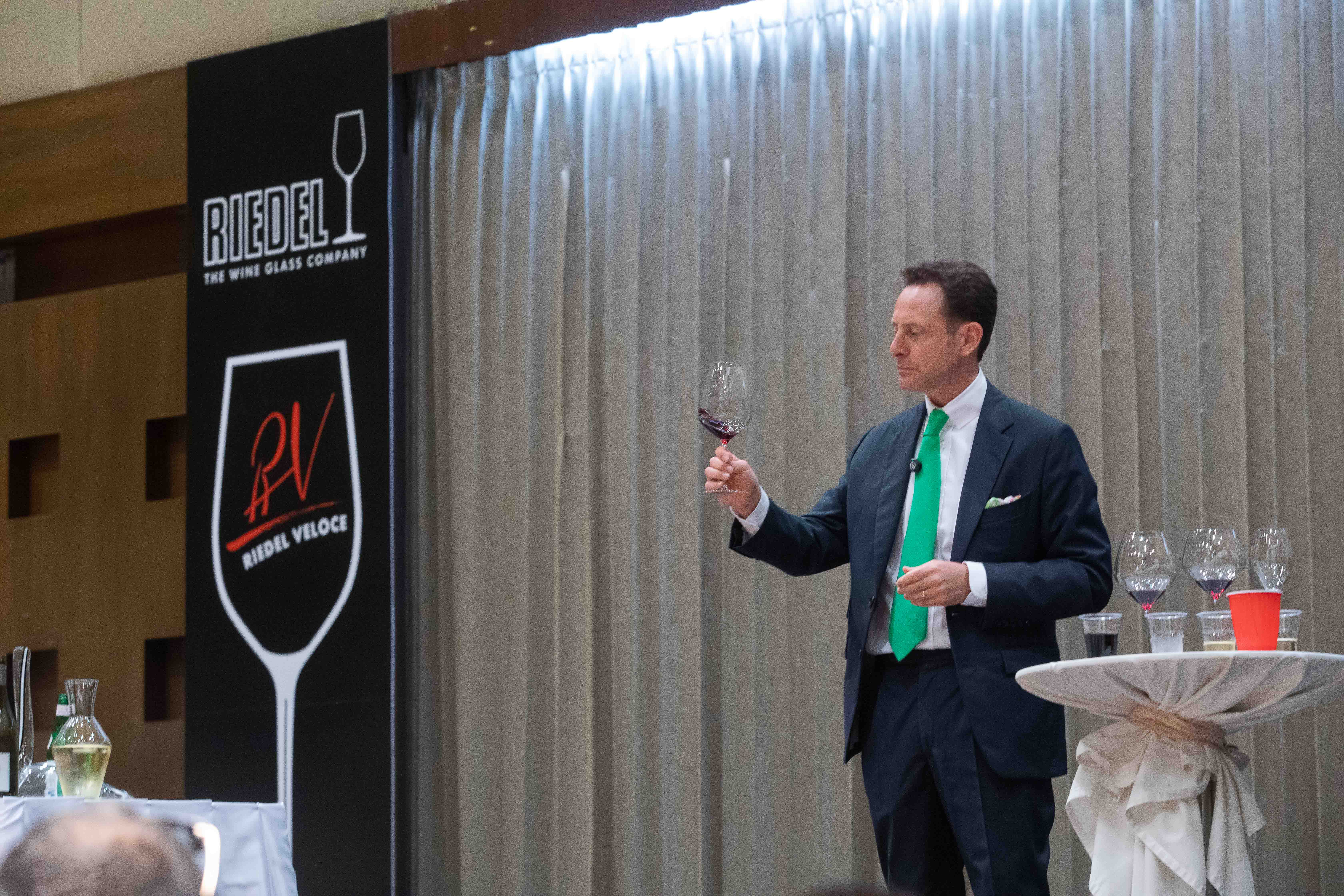
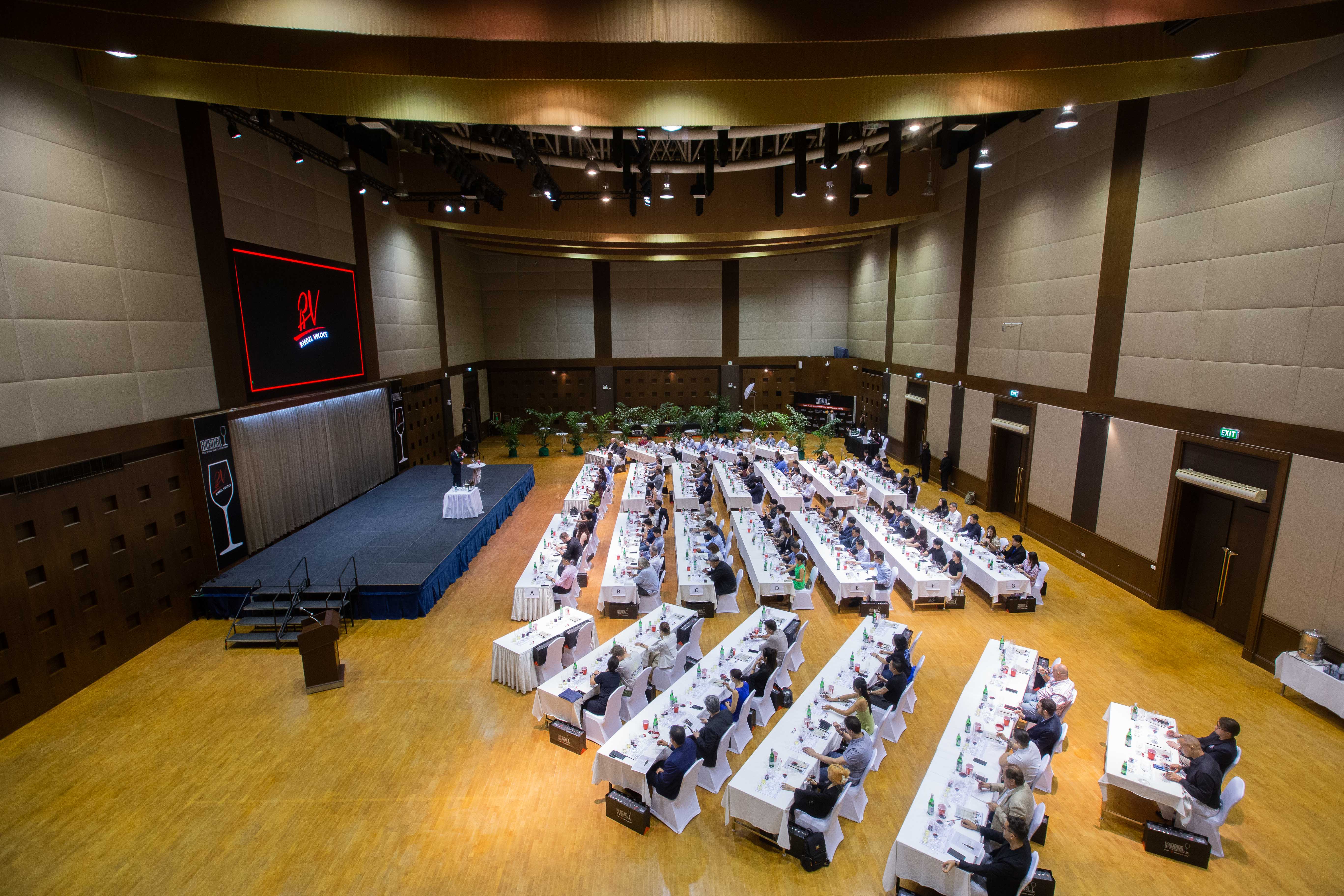
In essence, the concept is straightforward: select a glass based on personal enjoyment, be it wine or fruit. They host events centred around tasting with various glassware rather than wines, emphasising how the glass influences the experience. At times, one may find a wine enjoyable in one glass and less so in another, until the reasoning becomes clear.
For the food pairing topic, in Mr. Riedel’s view, the key lies in recognizing individual tastes. Having spent two days in Thailand, he’s already noticed the various differences in cuisine compared to his home country. Embracing a traditional approach, he recently enjoyed a 13-course Thai menu at Baan Phraya, nestled within the Mandarin Oriental, where only one wine was served—a minerality-driven Austrian Muskateller wine, reminiscent of Riesling. He believes this style of wine, with its fruity character, is an ideal match for local Thai dishes.
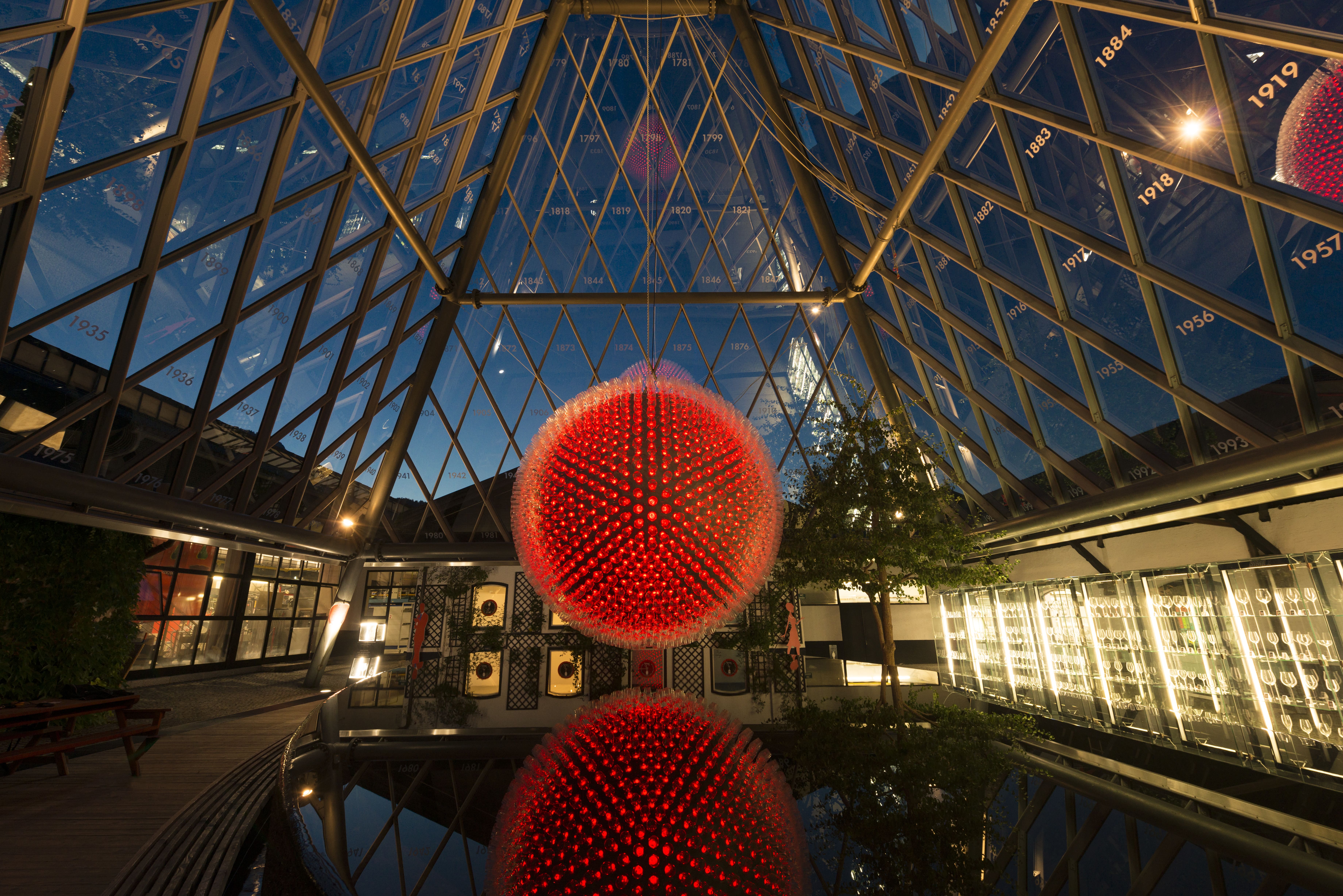
Riedel Factory Photo: Courtesy of Riedel
Addressing sustainability, Mr. Riedel highlighted ongoing efforts to reduce environmental impact, including the elimination of lead from crystal production in 2015.
Despite the energy-intensive nature of glass production, Riedel is committed to exploring cleaner energy alternatives to mitigate environmental impact while providing sustainable employment opportunities.
“… my wine glass is a hundred percent reusable and recyclable. The disadvantage is that it takes a lot of energy to produce it. Obviously, we are working diligently on finding alternatives to produce it. We’ve become cleaner because in 2015 we decided to remove lead from crystals, so we no longer use lead crystals. At the beginning, people saw this as downgrading quality, but absolutely not. The quality remains the same. So, that was a big step for the environment and my employees too because lead in production can be harmful to people.”
In response to market trends, Riedel emphasised catering to a niche audience of wine enthusiasts for whom wine is a lifestyle choice rather than a mere beverage.
“So, first of all, we are trying to reach everybody who appreciates good wine. What’s the difference between wine and good wine? It may start with human behaviour. Do you drink wine to get drunk, or do you drink wine with food to celebrate the moment? There’s still a huge gap in between.
So, I don’t focus on the first group of people; I focus on the group of people for whom wine is becoming a lifestyle. It’s a part of their everyday experience. They enjoy good food, dine out, and visit places like Louis Vuitton not just to buy a bag, but to indulge in a piece of cake. Those are the people that I’m focusing on. Therefore, we’re quite niche, just like the world of cocktails. We’ll never become mass-market because we’re not producing a product that people must have; rather, we’re a product that people choose by education, training, exploration, and worldly experiences. That’s when you understand the context of my brand.”
Reflecting on his role in continuing the family legacy, Riedel expressed the importance of fostering a passion for the business within future generations. While acknowledging the challenges inherent in family succession, Riedel emphasised the significance of maintaining strong familial relationships and instilling a sense of pride and dedication in the next generation. He underscored the value of mutual respect and shared passion in ensuring the continuity of a family business.
“My job isn’t done by building and selling; my job is done when I build and pass on. This is probably the biggest challenge in any family business: to have the next generation interested in what their parents and grandparents did.”
As Riedel navigates the complexities of tradition, innovation, and legacy, one thing remains clear: the journey is ongoing, the challenges are ever-present. However, fuelled by a commitment to excellence and a genuine love for its craft, Riedel continues to shape the world of fine drinkware.
In a cinematic landscape saturated with remakes, reboots and sequels, you might ...
Find out more about your celeb favourites and their most loved vacation ...
These top 5 barber shops in Bangkok are where gentlemen can elevate ...
While traditional TV shows are serving us endless boy-meets-girl tales. Thailand has ...
Sailorr and Molly Santana’s black grills fuse hip-hop swagger with homage to ...
Netflix Thailand has officially announced a new price for base subscriptions We’ve ...
Wee use cookies to deliver your best experience on our website. By using our website, you consent to our cookies in accordance with our cookies policy and privacy policy